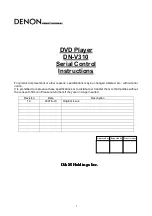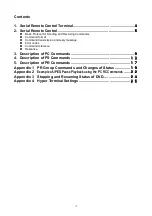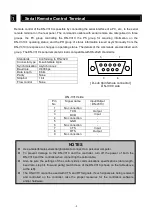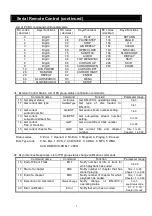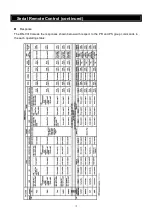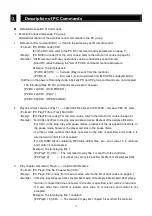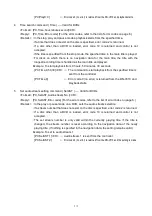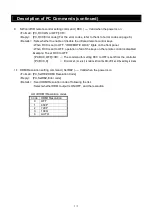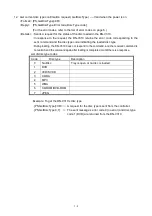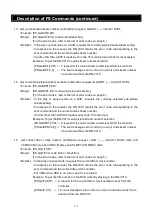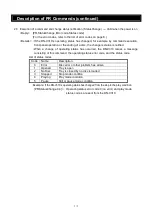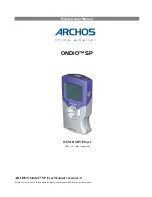
5
2
Serial Remote Control
Basic Protocol for Sending and Receiving Commands
The basic protocol of this interface is a method in which the device with which serial communications
are possible (hereafter called “the controller”) issues commands and the DN-V310 returns the message
that execution has been completed.
When using a personal computer, serial communications are possible using Hyper Terminal included
as a standard with Windows95™ and later.
Command format
ASCII character codes are used for commands and messages. Command sections are expressed with
two characters. Only the command texts specified for a combination of capital and small letters the
each command can be received.
The basic format of transmission commands is [group,command,parameterlist], terminated by the
<CR> code (0DH). The DN-V310 recognizes the end of a command through this code.
The parameter ranges are defined for each command (some commands have no parameters), so send
in a format conforming to that command’s specifications.
Example: Controller [PC,PlayT,1]<CR>
:
Issues a command for playing Title No. 1.
DN-V310 [PC,PlayT,0]
:
The DN-V310 plays the assigned title and returns the error code 0 (no error).
Command transmission and reply message
When the DN-V310 receives a command and completes the instructed task or when an error occurs,
the DN-V310 returns a reply message to the controller. The reply message consists of the sent
command to which an error code is added. There are five types of error codes:
Error code indicating acknowledge reception: 0
Error code indicating that an error of undetermined cause has arisen: 1
Error code indicating that the sent parameter is invalid for the DN-V310’s operating status: 2
Error code indicating that the command is invalid due to a parameter range or format violation: 5
Error code indicating that the command is invalid for the loaded disc type: 10
The different commands corresponding to the various device statuses are shown on the table on page 8.
1. PC group
:
External control of the DN-V310 using various commands from the controller.
2. PS group
:
Request of sending of operating status from the controller to the DN-V310.
3. PR group
:
Issue of description of change of status when DN-V310 is not synchronized
due to a change of status.
DN-V310
Controller
OK or
Error
Answer
Data
PC Control
Command
PS Control
Status
Command
PR
Asynchronous
Response
DN-V310
Controller

